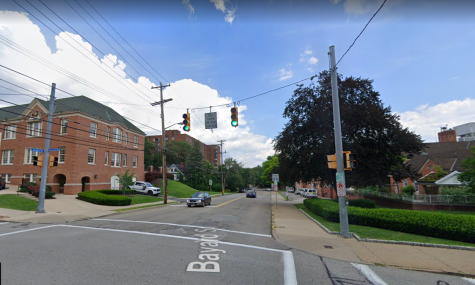Aria Eppinger Takes Home the Gold in Science Competition
During the last week of October, while her classmates were busy taking tests, doing homework, and sitting through classes, freshman Aria Eppinger was experiencing learning in a whole new way. One of 30 finalists in the Broadcom MASTERS competition, Aria traveled to Washington D.C. for the week of a lifetime. After finishing in the top ten percent at PRESF, the local science fair, Aria was nominated for the Broadcom MASTERS. She then filled out an online application, and was selected out of about 100,000 middle school students to be one of the finalists! In D.C., the students, who were from all around the nation, not only presented their experiments/ideas to a panel of judges, but also took on team science and engineering challenges, including “building a raspberry pie contraption, designing a futuristic brain, and creating a board game to educate children about healthy eating habits and nutrition. My favorite challenges were netting for fish and designing and building a prototype of a robotic crab arm.” And, to top it all off, Aria was awarded the Robert Wood Johnson Foundation Award on the last day of the competition. The award celebrates the student with the greatest potential in health-related fields.
So, what did Aria do to accomplish such an incredible feat? Her experiment, which in full took about nine months, analyzed the effects of Roundup, the weed-killer, on human gut bacteria. She first became interested in this topic after reading an article about a correlation between head injuries and gut dysbiosis, or the imbalance of good and bad gut bacteria. Aria, who has had a few concussions in the past, was intrigued and continued her research, finding a study connecting Roundup to gut dysbiosis in animals. Revolutionizing research for this issue in humans, Aria exposed both good and bad human gut bacteria to Roundup and, with a system of lab equipment she designed herself, measured the bacterial growth of each sample. Then, using statistical analysis, she concluded that Roundup harms the good bacteria more so than the bad bacteria. In other words, traces of this weed-killer on food we eat could cause gut dysbiosis, which can can lead to serious diseases like cancer and diabetes.
One setback she experienced during the course of this project was how to measure the bacterial growth. The standard method requires pipetting into the machine in which the bacteria are held, called a spectrometer, every ten minutes for six hours. This time-intensive method was, of course, not compatible with Aria’s busy schedule, so she developed a system of “colorimeters inside an incubator/shaker, which grows and measures bacterial growth autonomously.”
Not only did Aria win the Broadcom MASTERS competition, receive the Robert Wood Johnson Foundation Award for Health Advancement, and earn $1,000 for WT’s science department, but she also pioneered study into the effects of Roundup on human gut health, something she discovered has “important public health implications”. This is almost unheard of for a middle school student (Aria did this experiment while she was in eighth grade). When asked what she hopes to be when she’s older, Aria replied that, as of now, she wants to be a biostatistician, although that may change in the future. Whatever she decides, it looks like this WT freshman has a promising future ahead!






